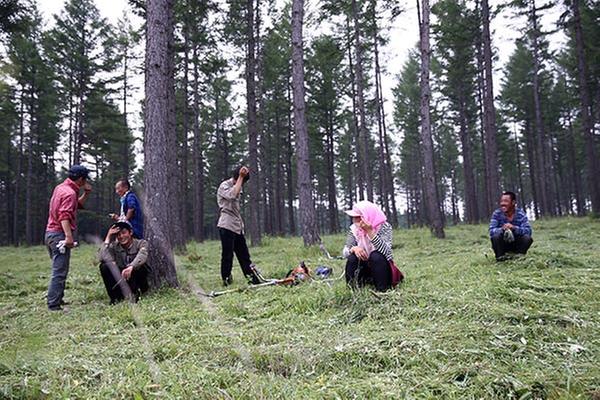The waters that nourish the magnificent trees of Saihanba

 |
| [Photo by Zou Hong/China Daily] |
New challenges
As time passes and self-sacrifice and hardship become a work ethic that few people are willing to contemplate, Saihanba faces a new challenge.
"The overwhelming majority of our staff are either older than 45 or younger than 30," Chen said. "Those in the first group have spent their whole working life here-most being offspring of the first-generation Saihanbaers. But they will retire in 10 to 15 years.
"The second group consists of people recruited over the past few years. Although some have stayed long enough to start calling this place home, many more have wavered and left, unsure whether all the hard work and isolation are really what they want."
The way people are recruited has made things worse, Chen said.
"The rules call for all vacancies to be advertised, and there is open competition for them, mostly among university graduates. But most of the candidates, especially those from outside the province, know little about what the work entails, or they see it simply as a springboard to other opportunities. Many go on to do postgraduate study or sit tests for government jobs after a year or two."
At the same time, children of the older generation of forest workers are shut out.
"That's because they don't have qualifications, most having grown up unattended by their parents," Chen said. "And the quality of education in this part of the province has certainly not been the best.
"But they love this place, which is their home. Of course they need to study and improve themselves if they are to be up to the task. But if you have ever spent one winter here, you'll know that there's only one thing that can beat it, and that's love."




































